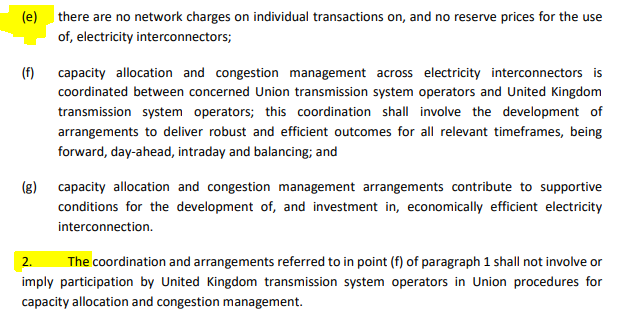FELIXSTOWE, England (Reuters) -
In just one month of post-Brexit trading, British logistics expert Jon Swallow has seen exports dive, prices rise and customers so desperate that he is practically offering a counselling service.
Those companies that trade goods between Britain and the bloc are paying a price, particularly small firms.
Previously Swallow’s firm, which moves up to 10,000 truck loads across Europe a year, would have handled an equal measure of imports and exports
He said many EU drivers were adding 400 pounds ($550) to the cost of driving into Britain so they were covered if they returned without any goods. The industry estimates
“We have calls daily at the moment with people, desperate,” Swallow said. “They need to get their goods moved before the buyer decides to go somewhere else. (But) it’s too much. They just can’t comprehend all that needs to happen.”
Swallow said bigger firms had generally performed better by throwing people and money at the problem.
“The game has changed,” he said, adding that UK Plc had been based on the free flowing movement of goods. “This is a hard Brexit, this is as hard as you can get without no deal" https://t.co/ocMWwlrLJr
More from Michael M. 🇨🇭🇳🇴🇮🇸🇱🇮🇬🇧
with fewer rights for Brits in their own country & across the EU/EEA.
And that there is not a lot more official opposition/media attention & anger about it
.
Even more so when I read the following from 2010 by the "Taxpayers Alliance"
@bakerstherald Thanks for bringing this to my attention when the MSM - for whatever reason - is so noticably reticent to expose these would be quickly evolving (sounds better/less sinister)
Fight it. Hard. Or you'll find yourself living in a totally deregulated 'zone' where the corruption and cronyism you see in government now will look like a toddlers fucking picnic! This is a brief glimpse of what will come: https://t.co/8ktTmElDmW
— Louise Crossley \U0001f577\U0001f41f3.5% #NotMovingOn (@CandidePeel) December 28, 2020
From 2010
"As long as anyone can remember, Britain's old industrial heartlands have been a disaster area. Once they'd lost their traditional industries like steel and shipbuilding, something very bad happened to them - they seemed to lose the will to live. And as we've blogged
many times (eg here), despite decades of political promises and billions of tax-funded support, they have never managed to leave the high dependency unit. For example, when last sighted - in 2007-08 at the height of the biggest economic boom the world has ever seen -
UK pork processors are experiencing significant issues in exporting products to the EU, which has already brought part of the industry to a complete standstill, risking knock-on impacts on farm.
Sector by sector falling overhttps://t.co/6HIXzf8qq8
— Morgan Leahy (@MorganLeahy) January 14, 2021
The widely seen footage of overzealous Dutch (*my edit: "no they were not"*) inspection officials confiscating ham sandwiches transported by British hauliers is just the tip of the iceberg as far as the UK pig sector is concerned.
The NPA’s processor members have reported that
excessive (*my edit: only for non-EU members*) bureaucracy associated with paperwork requirements are causing delays at Dover, Calais and other ports. With pork being a perishable product, these delays are making UK shipments unattractive to buyers in the EU, forcing processors
to reject shipments and cancel future orders.
Despite the trade deal agreed between the EU & UK just before Christmas, the UK’s formal departure from the EU Customs Union and Single Market was always going to mean additional checks, new labelling and certification requirements
and delays at ports. While the full overall impact of the new rules is yet to be felt, as UK export volumes remain lower than normal for the time of year, the UK pig sector is already feeling the effect. Processors have reported a number of issues, including:
More from Brexit
It may be Boxing day, but I've had a quick look
Title VIII: Energy is the key section (page 156 onwards)
▶️ Standard stuff on commitment to competition, unbundling and customer choice
▶️ UK Capacity Market no longer needs to try to integrate overseas Capacity providers & vice versa
(Article ENER.6, Clause 3, page. 160)
2/

▶️ Existing "exemptions" for selected interconnectors will continue to apply.
This means that these interconnectors can continue to sell capacity rights ahead of time, rather than all through close to real-time markets.
(Article ENER.11, page 162)
3/

▶️ No network charges on individual interconnector transactions (as now)
▶️ But, UK cannot participate in EU procedures for capacity allocation and congestion management (more on this later)
(Article ENER.13, page 163)
4/

Gas trading: looks like the UK stays in the existing PRISMA gas trading platform.
Not my specialist area, but is this because PRISMA isn't an EU institution (unlike electricity market coupling)?
https://t.co/5GQJtZDpTa
(Article ENER. 15, page 164)
5/
Looks like a near-concession that the side letter is Padfield-compliant
O\u2019Neill says @BorisJohnson \u201cat the very least sailing close to the wind\u201d by potentially breaching promises to #courtofsession not to frustrate #BennAct in his signed letter to Donald Tusk
— Severin Carrell, Esq (@severincarrell) October 21, 2019
The rupture between Margaret Thatcher and Jacques Delors lives on in Brexit https://t.co/r3YiyPoSFB
— john milbank (@johnmilbank3) January 9, 2021
Thatcher: Protestant believer in the totally free market and absolutely sovereign centralised nation state. Delors: Catholic believer in third way personalism, corporatism and federalism. Individualism versus relational love. Heterodoxy versus Orthodoxy.
The article useful gives the lie to the idea that the Catholic vision of the EU has altogether vanished even though it is weakened. Delors wanted a social dimension to the free market and single currency and yet lexiteers laughably insist the EU is more neoliberal than the U.K.!
Subsidiary federalism is a doctrine of democracy and human fraternity. State sovereignty is a doctrine of naked power. It is a face of Antichrist. Leviathan.
Those combined that democracy can only be inside a single state fail to power just how much of private law and evermore so is necessarily international. Thus if political institutions don’t extend over borders there can be no democracy.
You May Also Like
As a dean of a major academic institution, I could not have said this. But I will now. Requiring such statements in applications for appointments and promotions is an affront to academic freedom, and diminishes the true value of diversity, equity of inclusion by trivializing it. https://t.co/NfcI5VLODi
— Jeffrey Flier (@jflier) November 10, 2018
We know that elite institutions like the one Flier was in (partial) charge of rely on irrelevant status markers like private school education, whiteness, legacy, and ability to charm an old white guy at an interview.
Harvard's discriminatory policies are becoming increasingly well known, across the political spectrum (see, e.g., the recent lawsuit on discrimination against East Asian applications.)
It's refreshing to hear a senior administrator admits to personally opposing policies that attempt to remedy these basic flaws. These are flaws that harm his institution's ability to do cutting-edge research and to serve the public.
Harvard is being eclipsed by institutions that have different ideas about how to run a 21st Century institution. Stanford, for one; the UC system; the "public Ivys".













